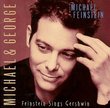| All Artists: Sibelius, Sanderling, Berlin Symphony Orchestra Title: Sibelius: Complete Symphonies Members Wishing: 0 Total Copies: 0 Label: Brilliant Classics Release Date: 6/25/2002 Album Type: Box set Genre: Classical Styles: Forms & Genres, Theatrical, Incidental & Program Music, Historical Periods, Modern, 20th, & 21st Century, Symphonies Number of Discs: 5 SwapaCD Credits: 5 UPCs: 5029365632829, 822165632823 |
Search - Sibelius, Sanderling, Berlin Symphony Orchestra :: Sibelius: Complete Symphonies
 | Sibelius, Sanderling, Berlin Symphony Orchestra Sibelius: Complete Symphonies Genre: Classical
|
Larger Image |
CD DetailsSimilarly Requested CDs
|
CD ReviewsSanderling's Sibelius: Brooding, slow, inevitable Dan Fee | Berkeley, CA USA | 06/25/2004 (5 out of 5 stars) "I like my Sibelius slower, rather than faster. And Kurt Sanderling is one of the few old-school European conductors whose grasp of tempo is absolutely rock steady. He can set a slower pace, even one that at first seems dangerously risky for a certain piece of music, and hold it so steady and so true that the musical argument or narrative unfolds as if there were no other way for it to unfold.In my view, to my ear: this is exactly what Sibelius needs. Within the basic tempo, then, Sanderling lets all the frisky lights and brooding darks of Sibelius' real strangeness come through. Even in the first symphony, which gets short shrift by eveybody noting that it is too indebted to Tchaikovsky and others, Sanderling reveals that Sibelius had something new to say, even if he started with received forms.By the second symphony, I am totally hooked. Deliberately, just as if far northern skies were brewing up fire or ice or northern lights, Sanderling just sits you down and shushes you into quiet so that you can experience it all, rather like being seated observantly in some almost non-humanized natural landscape. I suppose Sanderling's approach just wouldn't wash, except that his players (Berlin Symphony) can follow him and bring his unforced vision into being without fluffs or weaknesses or glitches of superficiality.By taking Sibelius seriously, though not lacking in flashes of humor, Sanderling/BerlinS encourage us to see something truthful in all the mysterious, trembling and troubled volcanic shadows Sibelius could so uniquely conjur. I think people may sometimes not warm up to this sort of interpretation, since it hardly bothers to put much of a smiling human face on its representations of nature as evolving form and process. We might just as well not be the point here, as humans.But, having seen lots of human meanness upon which I prefer not to dwell too constantly, I find this independent sense of the natural that I think Sibelius captures all to the good. Dark and even cruel things may happen in the north woods, but the sheer egoism and pettiness of human cruelty is missing. Instead the great earth goes its own ways, with profound shifts occuring sometimes so slowly that human sight need not bother.In Sanderling's truthful and capable hands, the Berlin Symphony simply lets Sibelius cast the spells he brewed up, so.My recommendation is five stars, then. And the pricing will not gouge too much either. All told, this set is a genuine bargain, musically and otherwise. Stop reading reviews, and order it before it disappears again." Very fine performances, MAJOR packaging gripe John Grabowski | USA | 04/25/2005 (4 out of 5 stars) "With this set, once again Kurt Sanderling proves he is a major conductor swimming in a sea of mediocrity. Why this man never attained a major post is a mystery to me, unless he has never wanted one. This is generally first-class Sibelius and one of the very finest cycles out there. The few instances where it falls flat is due, I think, more to the limitations of the Berlin Symphony Orchestra (especially the trumpets, which are consistently weak) than to conceptual limitations of Sanderling--with one notable exception, and it seems to be the achilles heel of Sibelius cycles. The First Symphony flies out the gate with one of the most exuberant performances I've ever heard. This is a *Romantic* First--appropriate since Sibelius was still in his heavily-Tchaikovsky influenced state when he wrote this work. The sweeping violins in the second movement are infectious, and scherzo is thrilling--a great all-around performance. The Second is the Second. If you love this big bear of a symphony you'll love this performance, but I don't, so let's move on to the Third. A superb Third it is, with drive (a great strong downbeat to the opening theme really gives it solidity and pulse); if the slow movement isn't played with the same line as Colin Davis/BSO/Philips, well, that's a high standard. (In many other ways, this set equals the Davis Boston set, which is very high praise in my book. I feel the Fourth is also just a shade below Davis, with a chilling opening and a superbly detailed and articulated scherzo--it's detail work like this where Sanderling shines. The slow movement isn't as amazing as Davis and the finale is a bit sluggish. The Fifth is the set's first disappointment. It starts promisingly with the same meticulous attention to detail, but the big brassy climax never explodes. The trumpets are soft and underpowered; the release never happens. It's moments like this that I miss a big FAT symphony in these works and long for Davis/BSO, Bernstein/NYPO, or Ormandy/Philly. With the icy Sixth Sanderling gives us superbly transparent sound in the strings and chilly winds. (Throughout, Sandelring's sound has great clarity--essential for Sibelius though sometimes too much articulation can work against him--the tremolos in the violins at the very beginning of the First Symphony are too de-li-ber-ate, for example.) This Sixth is a fabulous performance. He plumbs the variations in the second movement in a way I haven't heard from a lot of other conductors. (I must revisit Maazel and Karajan/EMI. Something tells me they would do a superb job here as well.) At this point I was really impressed with this set. But the Seventh Symphony is always the breaker in a Sibelius set--at least that's been my experience. The best Seventh I've ever heard--indeed, possibly the best live performance I've ever heard of *anything*--was by Simon Rattle and the Berlin Philharmonic in San Francisco in 2003. I hope someone was running a tape recorder for that performance. Can this compare? Nope. Unfortunately Sanderling here is a little too slow. I like a broad Seventh, but this one never picks up that forward momentum, that ever-morphing quality so needed for a successful Seventh, the quantum work of the symphonic catalog. (You can never pin it down, structurally; every time you do it changes. That's one reason it's such a delight.) This performance takes a little too long and never builds to the monumental, majestic ending that's mandatory. (Karajan/DG similarly disappoints, though not as much.) Mind you, it's not DOA like Maazel's horrible Pittsburgh Symphony Orchestra account on Sony, but it's not at the level as the rest of the works in the box. (Oddly, Maazel's VPO recording is one of my very favorites. Don't know what happened in Pittsburgh, though.) The tempo shifts feel stiff and the coda lacks *nobility.* Oh, dear reader, if I could just teleport you to that Rattle performance at Davies Hall. He had the entire audience on the end of their seats. A critic later said the performance would be talked about for decades, and he was right. The performance here is a somewhat disapointing end to a fine set, but Davis/BSO ends just as disappointingly. In fact, lackluster Sevenths seem to be the biggest problem in collecting Sibelius symphony sets. Pity, as it's the greatest work he ever wrote, in my opinion. Five overtures, including the famous warhorse Finlandia, complete the set. And now for my major gripe. Despite what another reader on these pages says, this set is not that big a bargain. Davis/BSO on Philips gives you all the symphonies, the overtures *and* the Violin Concerto on FOUR discs in two slimline cases for less money. Lorin Maazel's cycle of the symphonies fits onto three CDs. This set is spread over five discs. They take up three times the shelf space of the Philips two-fers. The first disc contains just the first symphony, a work of barely 40 minutes' duration. The other symphony discs are likewise less than full. They easily could have spread the overtures among the symphony discs, reduced the cost of packaging and returned an inch and a half to my shelf." Fine Performances, Slightly Dated Sonics J Scott Morrison | Middlebury VT, USA | 03/31/2007 (4 out of 5 stars) "I bought this because of the incredible bargain price. For someone who wants to familiarize themselves with the Sibelius symphonic canon but doesn't want to pay an arm and a leg, one could certainly do worse than get this set from Brilliant Classics. By the way, many huzzahs to Brilliant for their, ahem, brilliant marketing strategy of acquiring rights to reissue recordings from other labels at super-budget prices. I've gotten many wonderful recordings this way.
Kurt Sanderling, originally a protégé of Yevgeniy Mravinsky in Leningrad, was a marvelous conductor whose career was somewhat hampered by his being in East Germany during its most repressive years; he was a superb Brahms conductor, for instance. (He is the father of the currently well-regarded conductor, Thomas Sanderling.) And these recordings were made behind The Wall in East Berlin in 1976. The orchestra is fairly good but as an earlier reviewer said, the trumpets are a bit weak. This is a shame in Sibelius because he tends to use trumpets in quite exposed ways with those fanfares and upper range flourishes. The problem with the brass seems to be mostly one of intonation and it is not, to be fair, a major one, but noticeable from time to time nonetheless. Sanderling's tempi tend to be broad and yet he manages to keep a certain tension and forward movement going. His Fourth is a bit tame, to my ears, missing the bite and snarl in that symphony. The more romantic of the symphonies -- Nos. 1, 2, 3, 5 particularly -- are done beautifully. The more radical ones are a bit less so. The set also includes some of the non-symphonic works -- Finlandia, Valse Triste, Night Ride and Sunrise, The Swan of Tuonela, En Saga -- and for whatever reason Paavo Berglund conducts the Berlin Radio SO in The Swan of Tuonela. Sonics are of their time. There is some tendency for a slight muffling of lower-range tones. Still, this is a creditable set and I would give it a slightly tempered recommendation at least partly because of the super-budget asking price. Scott Morrison" |

 Track Listings (4) - Disc #1
Track Listings (4) - Disc #1








